Car owners often talk about keeping their vehicles intact. But there is one aspect that always remains hidden under the hood: the car’s engine. Despite being the most important part of a car, most people do not gravitate towards the engine bay cleaning, owing to the complexity of the system and the presence of sensitive components alongside.
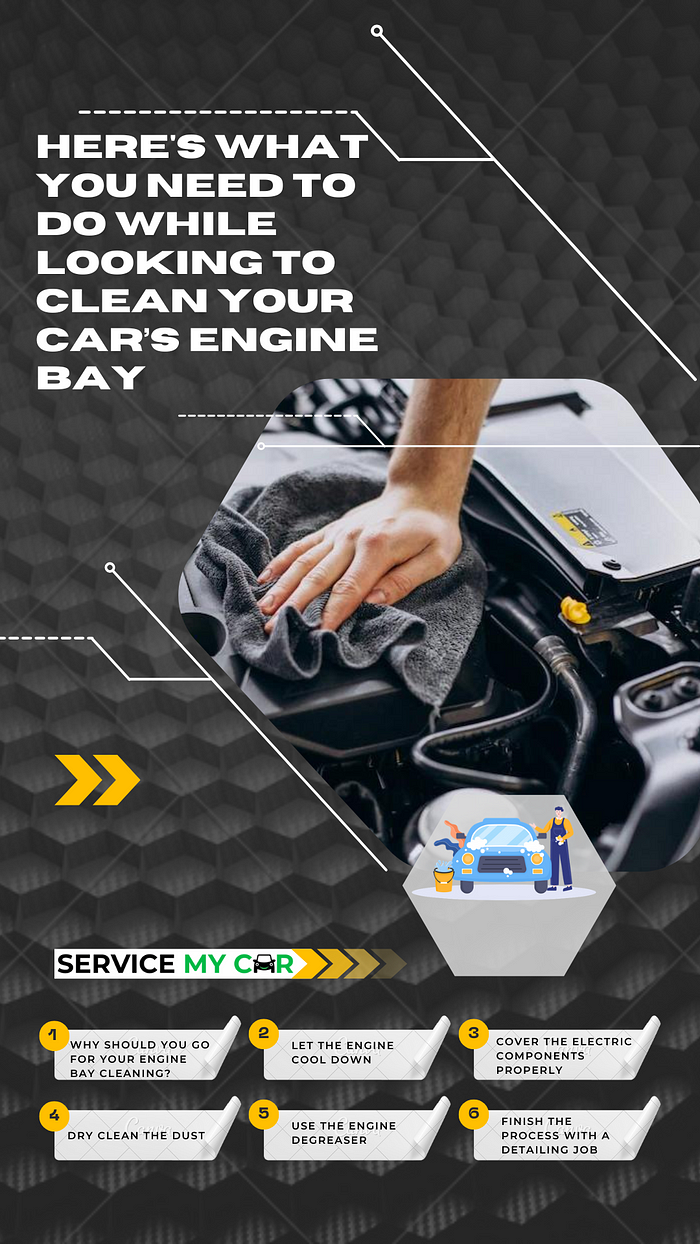
Admittedly, it requires a bit methodical to clean the engine bay. However, let’s understand the reason behind the cleaning of your car’s engine bay.
Why should you go for your engine bay cleaning?

Under the hood, a car consists of a complex set of components. Even though, these parts have a proper protection. However, dirt and grease gathers around the engine over time. Cleaning off dirt and grease always proves to be beneficially to the engine performance. In some ways, the lifespan of the engine gets a boost by routine cleaning the engine bay. Major reason behind such cleaning is not just tidiness. Residual grease makes it more difficult for the engine to release heat. Additionally, it makes it simpler to detect engine damage and leaks.
The condition of the car’s engine determines how often the engine bay is cleaned. For instance, you should typically clean the engine once every six months or once a year. However, this is not a standard, you might have to opt for engine cleaning more frequently based on condition.
Now that the importance of cleaning your engine bay is clear, the next question is how to perform such a task that requires a high level of precision. However, we are sharing the step-by-step procedure for cleaning your engine bay here.
1. Let the engine cool down
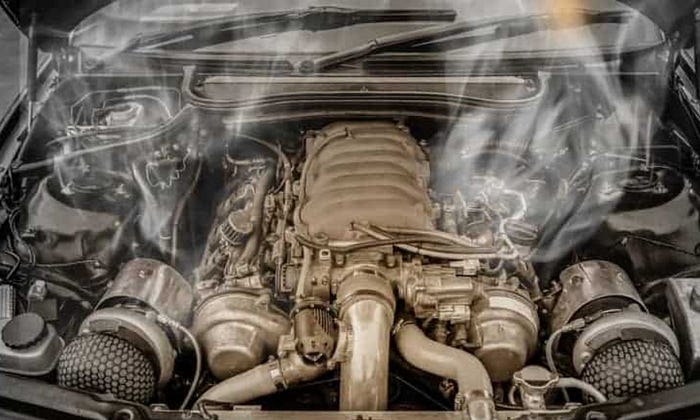
Check the temperature under the hood first becuase you will be working on the engine. Nevertheless, whether or not your car’s engine has been running depends on the situation. Ensure that the engine bay is completely cool.
When you use cold water on a hot engine, the temperature drops suddenly and unexpectedly, which shortens the lifespan of the engine parts. You must therefore wait until the heat dissipates.
2. Cover the electric components properly
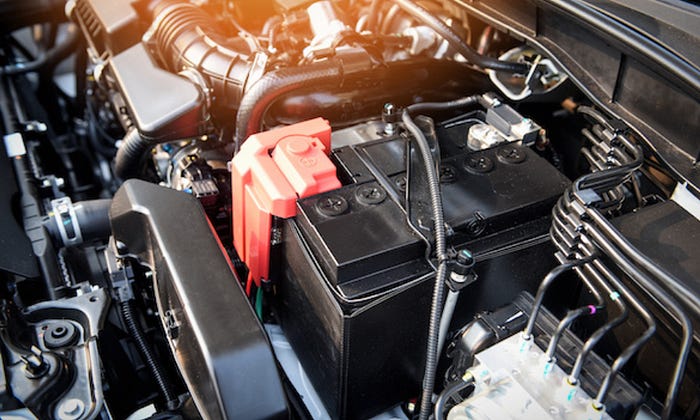
You should be mindful of accessories under the hood, particularly battery- and electric-powered ones. While attempting to clean the engine, water would be used. So take precautions to prevent damage to the wiring or delicate electrical connections underneath the hood.
It is wise to be proactive and cover or wrap all the electronics, the alternator, carburettor, and other exposed wiring with water-resistant plastic bags to reduce the infiltration of water. If you can, disconnect the battery terminal or remove it completely from the front.
3. Dry clean the dust
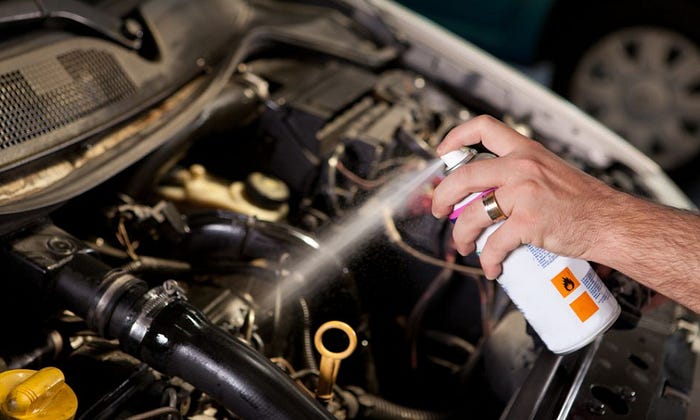
To get rid of the majority of the engine bay’s dirt and grime, try a dry cleaning first. All of the surface dirt, leaves, and dust can be removed from the engine bay using brush into the nozzle of the vacuum cleaner.
Maintain this procedure throughout the entire engine bay, being careful to get rid of any loose contaminants you can. In addition, this removes the majority of the dirt and dust before using any grease-removing agents.
4. Use the engine degreaser
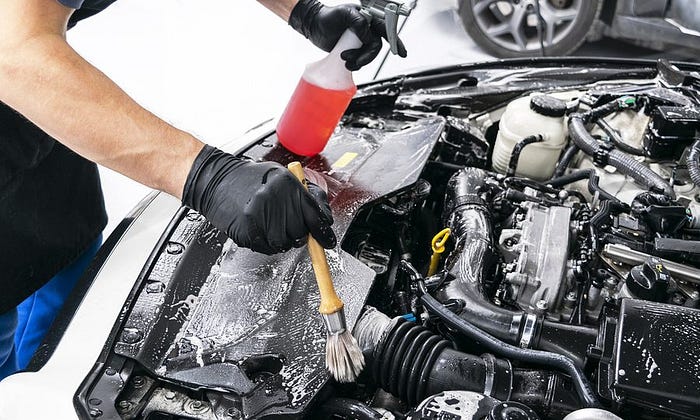
However, the engine does not get exposure while hiding under the bonnet. However, it continues to become a home for contaminants like grease and dust. In addition to everything else, the grease is very difficult to remove from the engine and requires significant effort.
First, thoroughly clean all the areas of the engine bay that are extremely dirty with your preferred degreaser or all-purpose cleaner before moving on to the remaining areas.
In order for the degreaser to break down the dirt and grime, you should wait a few minutes. Simply use degreaser and a detailing brush to get into every nook and cranny under the hood for a more thorough cleaning. The heavily impacted area needs to receive a significant amount of degreaser application as well.
Then, use water specifically mixed with something to spray off the degreaser, along with all the dirt and grime it loosened from the surface.
5. Finish the process with a detailing job
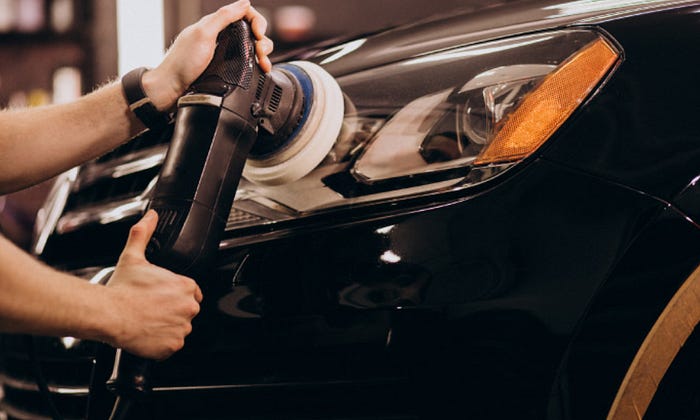
When all the impurities and contamination are cleaned, it is time to utilize some detailing on the plastics, rubber, and metal surfaces to fuel the fresh ability to deal with the heat of the engine, dust, and grime until you’re next cleaning schedule.
For metal surfaces, you can utilize a quality spray paint sealant or wax and apply it to all the painted and metal surfaces in the engine bay. This will provide excellent protection as well as a lot of gloss and shine. But there are also plastics-related solutions out there.
Service My Car offers exclusive car wash and car detailing services. You can make your engine clean just by visiting one of your local workshops. However, you can also book a car service or order a car repair through our app at any time.
If you are looking for any kind of car recovery then you can get help from car service provider such as Service My Car, omanicar, autoresort and more.

